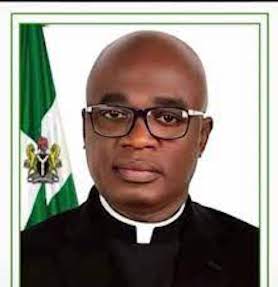NEWS
Why I Sing in Yoruba- Asake

Ace Afrobeat music star, Ahmed Ololade, aka, Asake, says he feels more ‘comfortable’ expressing himself in Yoruba in his songs.
The ‘Mr Money With The Vibes’ crooner said this during an Instagram interactive session with fans, adding that although he can sing in English, he prefers Yoruba.
Asake, went live on Instagram to chat with his fans after recently releasing his new album, ‘Lungu Boy’, and a curious fan asked him why he always sings in Yoruba, his native language.
However, seemingly enraged Asake responded that he was more comfortable singing in his native language and whoever does not appreciate his music in Yoruba should stop listening altogether.
He said: “I am more comfortable singing in Yoruba, it’s not that I can’t sing in English. If you fvck with me, fvck with me with my Yoruba. If not, then don’t”.
Report says that all three of Asake’s albums, including “Mr Money WithThe Vibes”, “Work of Art”, and the latest “Lungu Boy”, feature predominantly Yoruba lyrics.
However, his hit song “Amapiano” was nominated for “Best African Music Performance” category at the 2024 Grammy Award, despite being sung mainly in Yoruba.
‘Lungu Boy’ was released on August 9 and it features several superstars including Wizkid, British rappers Central Cee and Stormzy, American superstar Travis Scott, and Brazilian singer Ludmila.
The album tallied 5.86 million streams on Spotify Nigeria on its opening day, making it a new record on Spotify Nigeria, breaking the previous record of 4.91 million streams held by Davido’s ‘Timeless’.
The second track of ‘Lungu Boy’, ‘MMS’ recorded 870,577 streams on its first day of release on Spotify Nigeria ,setting a new record after surpassing the previous 626,000 streams set by Wizkid’s ‘IDK’ featuring Zlatan.
The album release is coming ahead of his upcoming ‘Lungu Boy’ tour which will include stops at the acclaimed O2 Arena in Uk and Madison Square Garden in the United States.(NAN)
NEWS
Assault: Governorship Hopeful Demands Justice for NYSC Member in Anambra

The YPP Candidate in the upcoming Anambra Governorship poll, Mr Paul Chukwuma, has decried the recent alleged assault on a female NYSC member by vigilance operatives (Udogachi) in the state.Reacting to the incident during an interactive session with newsmen in Awka, on Tuesday, Chukwuma described the attack as inhuman.
“I have watched the video of an assault on a lady by members of Udogachi, a security outfit under the control of the Anambra Government. “The lady, identified as Ms Jennifer Elobor, a corps member serving in Oba, Idemili South Local Government Area of the state, was beaten to a pulp and stripped naked by several operatives of Udogachi.“Similar barbaric behaviour, like the strange abuse of this lady, has continued to be meted out to unsuspecting members of the public in Anambra to the chagrin of all sane minds.“This particular incident must not be swept under the carpet, like the ones before it.“I am calling on the State Government to take a firm stance against these public abusers and bring them to justice.“I also call on the security agencies to ensure that these abusers are not only rounded up, but compelled to face the law,” he said.Chukwuma accused the state vigilance group of being high handed to the people they were supposed to protect.He said: “I am appalled by this absurdity, which has unfortunately become the daily experience of the residents of Anambra, who are held hostage in their homeland by a security outfit set up to protect them.“Notwithstanding, Prof. Chukwuma Soludo, the governor, has never deemed it necessary to call these people to order.”Chukwuma accused the State Government of not living up to expectation, hence the abuse of power by the security outfit.“The security outfit has always been on the negative side of the news for maltreating innocent citizens,” he said.The governorship hopeful alleged that insecurity in the state had increased unabated.Report says that Operation Udogachi was established by the government to complement the police and other security agencies in the fight against insecurity, such as kidnapping, armed robbery, cultism and ritual killings, among other crimes. (NAN)NEWS
Police Nab 23-year-old for Alleged Machete Killing of Girlfriend

The Police command in Rivers has arrested 23-year-old Kingsley Chinamezu for the brutal murder of Miss Confidence Sunny, 44, in Etche Local Government Area of the state. The Command’s spokesperson, SP Grace Iringe-Koko, disclosed this in a statement issued in Port Harcourt on Wednesday.
She said Chinamezu, also known as Power Sharp, allegedly hacked his girlfriend, Sunny, to death with a machete on July 30 in Umuebule community. “After allegedly committing the crime, the suspect fled Rivers but continued issuing threats to the victim’s family, boasting that he could harm them without consequence,” she stated. Iringe-Koko said that after a formal complaint from the deceased’s family, Commissioner of Police, CP Olugbenga Adepoju, assigned the case to the Anti-Kidnapping Unit (AKU). She explained that operatives of the AKU, acting on credible intelligence, tracked and arrested the suspect on Aug. 15 at his hideout in Egbeta village, Edo. “During interrogation, the suspect voluntarily confessed to the crime and gave details of the events leading up to the murder,” she revealed. Iringe-Koko said evidence was being compiled while the suspect was undergoing further investigation and profiling for possible involvement in other crimes. CP Adepoju commended the operatives for their swift response and diligence in apprehending the suspect. He assured residents that Rivers would not serve as a haven for criminals, stressing the Command’s firm commitment to justice and public safety. “Perpetrators of heinous crimes should desist, as the law will eventually catch up with them, and they will face its full wrath,” Adepoju warned. (NAN)NEWS
Alia Bows to Pressure, Suspends Council Chairman, Two Head of Parastatals

From Attah Ede, Makurdi
Benue State Governor Rev. Fr. Hyacinth Alia has approved the suspension of the executive chairman of Otukpo local government council, Maxwell Ogiri, for a period of one month.The Governor also affirmed the immediate suspension of the Executive Chairman of the State Universal Basic Education Board (SUBEB), Grace Adagba, and the Executive Secretary of the Benue State Lottery Commission, Michael Uper for the period of one month each respectively.
Their suspension followed an intense pressure from the State House of Assembly that had earlier passed resolutions calling for immediate suspension of the affected officers.The resolutions of the House were conveyed to the governor’s office regarding the suspension of some public officials.In a statement signed by the Governor’s Chief Press Secretary Kula Tersoo which was made available to newsmen on Wednesday, said the governor’s action was in line with the resolutions passed by the House.Alia reiterated his unwavering commitment to the rule of law, due process and the principles of separation of powers.He commended the House of Assembly for exercising its constitutional responsibilities and assured the people of Benue State that his administration remains dedicated to transparency, accountability, and good governance.Alia urged all affected institutions to ensure seamless continuity of service delivery during this period and called on the people of Benue State to continue to support the government’s efforts towards building a state that works for all.Recall that at its sitting two weeks ago, the assembly in a unanimous resolution, recommended the suspension of the SUBEB Chairman for gross insubordination, while the Otukpo Chairman and the Executive Secretary, Benue State Lottery Board were accused of misappropriation of funds.The house had insisted that if these persons were not suspended, it would not honor any correspondence from the Governor.The house equally put on hold the screening of the list of commissioner nominees sent to the house by the governor following the inability of the governor to approve the house numerous recommendations.
















